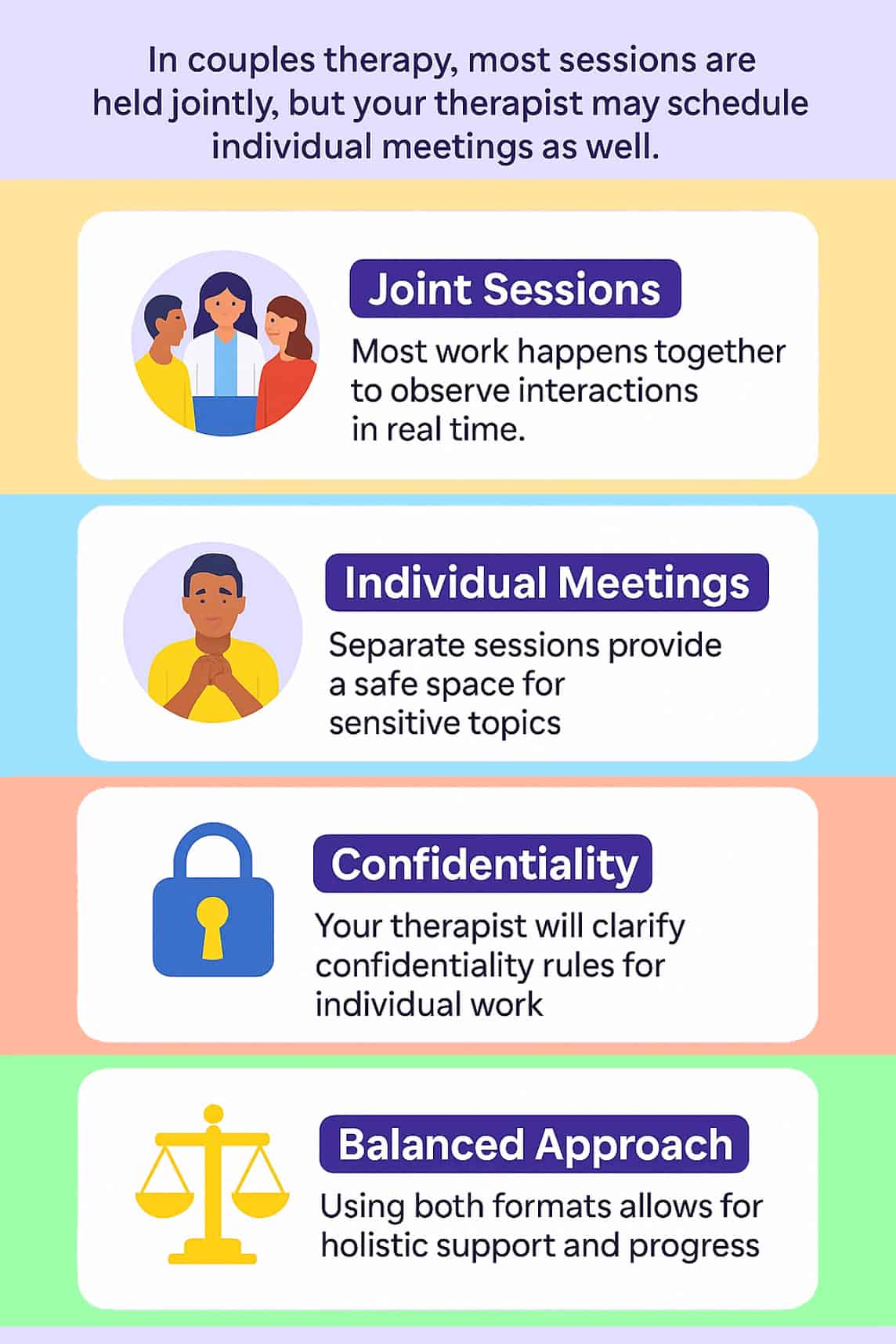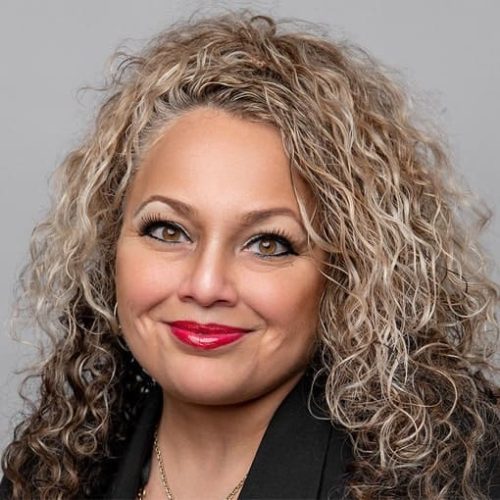
Key Takeaways for Meet Together or Separately With the Couples Therapist.
- You will typically start and continue with joint sessions to work on communication and connection as a couple.
- Most therapists include individual sessions occasionally to address private concerns or trauma without pressure.
- The use of both formats helps tailor support, build trust, and strengthen your relationship.
- Your therapist will clearly explain confidentiality rules for any separate sessions.
- This balanced approach helps you grow as individuals and as a team.
👉 Ready to take the next step? learn more about couples counselling at AERCS and book your free 15-minute phone consultation.

The short answer is that you will take part in joint and individual sessions. Most of your work happens together so the therapist can observe real-time communication, yet you may each have short one-to-one meetings to share sensitive history safely. Your counsellor always explains how confidentiality works before any separate conversation takes place.
Why Start With Joint Sessions?
Observing Real Interactions.
When we meet as a trio, I can watch how you speak, listen, and respond. This live view reveals patterns you might not even notice at home.
Building a Shared Roadmap.
By hearing from both of you at once, I help you set mutual goals that feel fair and motivating.
The Role of Individual Check-Ins.
| Purpose | How It Helps You |
|---|---|
| Explore sensitive topics | Trauma, affairs, or mental health issues can be disclosed privately first |
| Assess safety | I check for emotional or physical abuse and plan next steps responsibly |
| Clarify personal goals | Each partner defines what success looks like for them |
Individual meetings are brief, usually ten to twenty minutes, and they support, rather than replace, the main work you do together.
Confidentiality Rules You Should Know.
- No secrets that harm the relationship:
If one partner shares new infidelity during a private check-in, I encourage disclosure in a joint session. - Safety overrides secrecy:
Any risk of self-harm or violence must be addressed immediately. - Transparent policies:
Before we split the session, I outline what stays private and what must be shared.
How a Typical Session Block May Look.
- Session 1: Joint assessment, relationship timeline, immediate goals
- Session 2: Short individual check-ins, then back together to discuss patterns
- Sessions 3-8: Joint skill building, occasional five-minute solo feedback if needed
- Session 9: Progress review, plan next steps, book booster visit
Tips to Make the Most of Both Formats.
- Arrive with one concrete example of a recent disagreement.
- Use calm body language to support a safe joint space.
- Write questions for your private check-in so you do not forget key points.
- After each session, debrief together on what felt helpful.
Two Formats, One Goal.
Using joint and individual sessions lets you benefit from real-time coaching while still having space for private reflection. This balanced approach speeds insight, protects safety, and keeps both partners engaged. Ready to try a flexible model that fits your needs? Visit our Couples Counselling page to book a free 15-minute consultation and start building a stronger connection today.
Why do therapists combine joint and individual sessions?
Joint and individual sessions let counsellors observe interaction patterns and address private concerns safely.
How long are the individual parts of joint and individual sessions?
Most individual segments in joint and individual sessions last ten to twenty minutes, just enough to cover sensitive material.
Will anything I say in the individual part of joint and individual sessions stay confidential?
Yes, joint and individual sessions follow clear confidentiality rules, except when safety or major relationship secrets are involved.
Can we request only joint and individual sessions without solo time?
You can, but some therapists recommend joint and individual sessions to ensure balanced insight and safety.
Do joint and individual sessions cost extra?
No, joint and individual sessions are often billed as one appointment block, not separate fees. You should ask your couples counsellor to clarify.
Do You Need Couples Counselling?
Answer these 10 questions to see if a few sessions could help strengthen your relationship.
Note: This questionnaire is educational only and does not replace a clinical assessment. If you wish to obtain professional guidance, please follow up with a licensed mental health professional.

